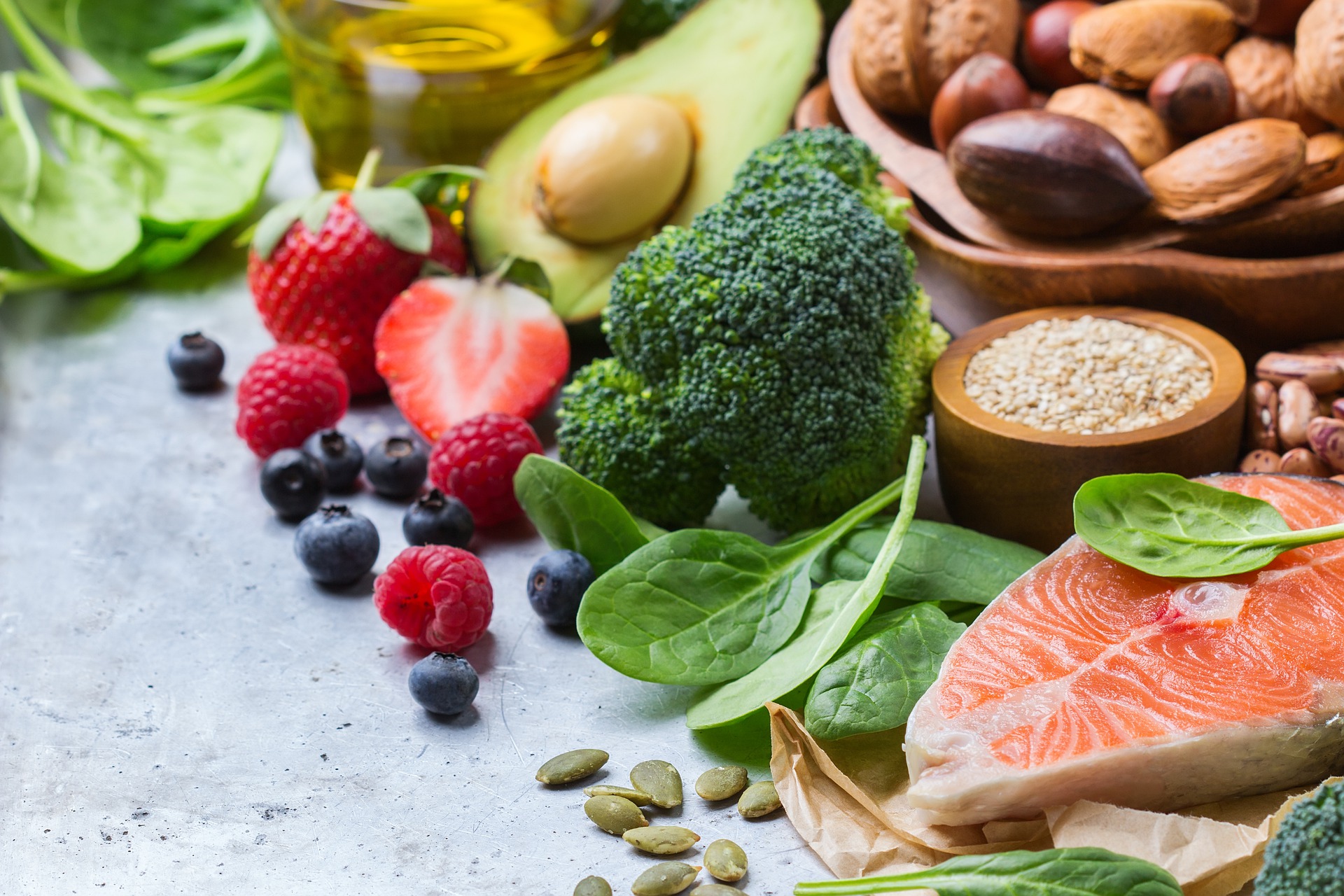
Fatty acids, lipids, fats…whatever term you use, these macronutrients get a lot of attention for their influence on cardiovascular health, and rightly so! But they don’t receive nearly enough credit for their role in mental health. There is a growing body of scientific research that demonstrates how fatty acids can influence mood and mental health.
Saturated vs Monounsaturated Fatty Acids and Mood
The Mediterranean diet has long been touted as beneficial for cardiovascular health, but more recently, evidence shows that it is valuable for mental health as well. A 2013 study found that substituting dietary saturated fat (palmitic acid) with monounsaturated fat (oleic acid) is associated with positive changes in mood, as well as increased physical activity and resting energy expenditure. The study compared a high palmitic acid diet – more common in Western/Standard American Diets (SAD) – to a high oleic acid diet – typical of traditional diets like Mediterranean – and concluded that replacement of dietary PA with OA appears to affect behavior, specifically reducing anger and increasing physical activity.
The Role of Omega-3 Polyunsaturated Fatty Acids on Mental Health
Research on omega-3 FA supplementation has shown great promise for mood disorders, including effective augmentation for bipolar disorder and major depression, and effective treatment for attention and focus. Interestingly, there is an inverse correlation between fish consumption and depression worldwide; while this is not causative evidence, it suggests the high omega-3 content in fish has a positive effect on mood.
Several different omega-3s exist, but most of the research focuses on alpha-linolenic acid (ALA), eicosapentaenoic acid (EPA), and docosahexaenoic acid (DHA). ALA comes from plant foods, whereas EPA and DHA come from animal foods. ALA can be converted into EPA and then to DHA, but the conversion (which occurs primarily in the liver) is very limited, with reported rates of less than 15%. Therefore, consuming EPA and DHA directly from foods and/or dietary supplements is the most efficient way to increase levels of these fatty acids in the body.
Food Sources of Omega-3s
The American Psychiatric Association recommends consumption of at least 1 gram daily for all patients with psychiatric disorders. While supplementation can correct a deficiency more quickly than consumption of foods high in omega-3s, long-term supplementation may not be necessary. Ongoing maintenance of the recommended daily intake can be attained with consumption of wholesome, omega-3 rich foods. Great animal sources of EPA/DHA include cold-water fish and seafood, as well as grass fed/pastured eggs, meat and dairy. For example, a 4-ounce portion of wild Atlantic salmon contains approximately 2 grams of DHA/EPA, a 4-ounce portion of Rainbow trout provides approximately 1 gram, and 2 pastured egg yolks contain roughly 0.3 grams (the egg yolks contain the omega-3 fats, not the whites).
Plant sources of ALA include chia seeds, flax seeds, hemp seeds, walnuts and pecans, plus greens like purslane* and algae. One tablespoon of flaxseeds** contains approximately 2 grams of ALA and 1 ounce (2 tablespoons) of walnuts contains roughly 0.75 grams.
So how much should someone consume to get enough omega-3s in their diet? A general guideline is approximately 3-4 servings of animal sources per week, plus a daily serving of plant sources. For vegetarians/vegans, 2 daily servings of plant sources should suffice.
5 Dietary Takeaways for Diet and Depression
Based on the science, it seems prudent to educate patients on simple dietary changes that can positively influence mental health. The following takeaways are useful guidelines for clinicians and patients alike:
- Follow a traditional diet (Japanese, Norwegian, Mediterranean) – the primary tenants are similar in that they include whole foods with higher oleic acid and omega-3 content that the SAD
- Emphasize foods rich in omega-3 FAs (Animal sources: cold-water fatty fish, seafood, grass-feed/pastured beef, eggs and dairy. Plant sources: chia seeds, flax seeds, hemp seeds, walnuts, pecans, purslane, and algae)
- Include fruits, veggies, nuts/seeds, legumes, whole grains
- Replace unhealthy, nutrient-poor food with wholesome, nutrient-dense food
- Limit intake of fast food and commercially prepared baked goods and sweets
*Not familiar with purslane? It is an annual herb-like succulent that’s similar to sprouts with a flavor comparable to arugula. https://www.fromachefskitchen.com/purslane-chimichurri/
** A note about flaxseeds, because the outer hull of the seed is very difficult to digest, it is generally recommended that you grind the whole flaxseed to get the greatest nutritional benefit.
Written by
Mary Rondeau, ND, RH(AHG)
Sources:
- https://pubmed.ncbi.nlm.nih.gov/16269019/
- https://www.ncbi.nlm.nih.gov/pmc/articles/PMC3607650/
- Dietary intake of palmitate and oleate has broad impact on systemic and tissue lipid profiles in humans
- Omega-3 fatty acids and mood disorders
- https://ods.od.nih.gov/factsheets/Omega3FattyAcids-HealthProfessional/
- https://naldc.nal.usda.gov/download/41808/PDF







